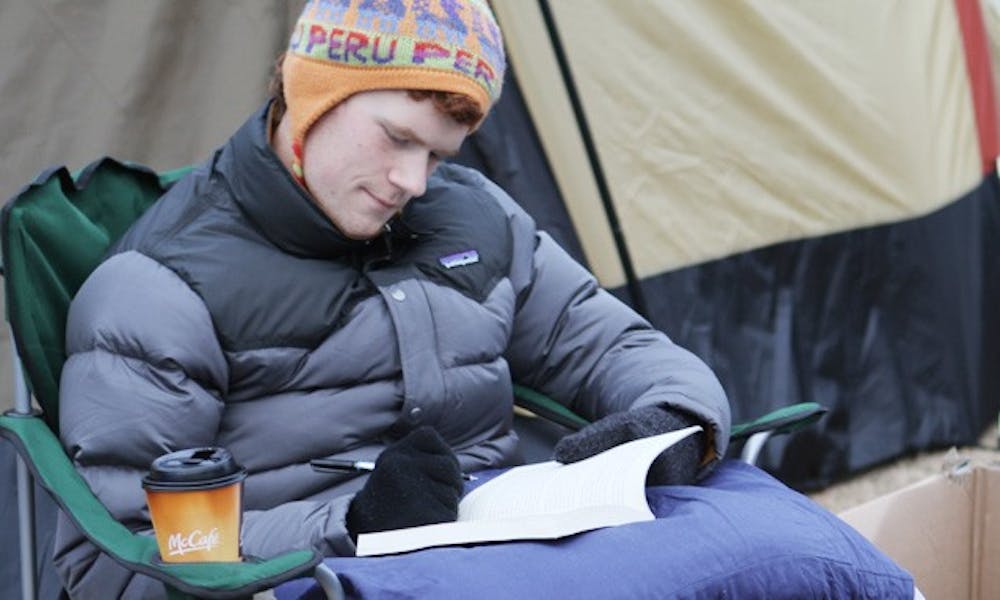Cameron Crazies may have braved the cold this tenting season, but Student Health has remained bustling during its busiest time of year.
Student Health has treated 89 tenters with flu-like symptoms this year, said Jean Hanson, assistant director of Student Health. Living and sleeping in close proximity to others who may be sick increases the risk of exposure in Krzyzewskiville, Hanson said. However, staying away from other tenters when ill can be difficult due to obligations to remain in the tent.
“The bottom line is that the whole environment over [in K-ville] is more likely to allow people to be sick,” Hanson said. “They’re living in the small space, they’re breathing on each other and all the germs are flying around. It makes sense that the people over there are sicker than the overall population.”
Those high numbers, however, may be a result of the cold weather and not tenting specifically. Hanson said the 89 tenters that have seen Student Health represent only 3 percent of the total visits from undergraduate and graduate students this January and February. That 3 percent rate is a decrease from 2007, when tenters represented about 5.8 percent of visits. The number of tenters visiting Student Health has been relatively consistent since 2008, which may be partially attributed to greater health awareness initiatives, she added.
Staying warm, eating balanced meals and steering clear of alcohol are key to preventing illness, said Tom Szigethy, associate dean and director of the Duke Student Wellness Center. He noted that alcohol will speed up any weather-generated health problems.
“If people drink in order to stay warm, the blood comes to the surface of the extremities,” Szigethy said. “So you feel like you’re warm initially, but, because the blood is at the surface, you would end up having problems with hypothermia quicker if you’re drinking.”
Students agree that late-night tent checks—and in some cases a busy start to the Spring due to rush events—have contributed to sickness among tenters.
“I’ve felt physically exhausted and definitely have a cold,” said freshman Sam Miller, a black tenter. “But my social health is awesome. I’m closer to all my friends, and [I] am very happy. It’s all worth it, no question.”
Get The Chronicle straight to your inbox
Signup for our weekly newsletter. Cancel at any time.

